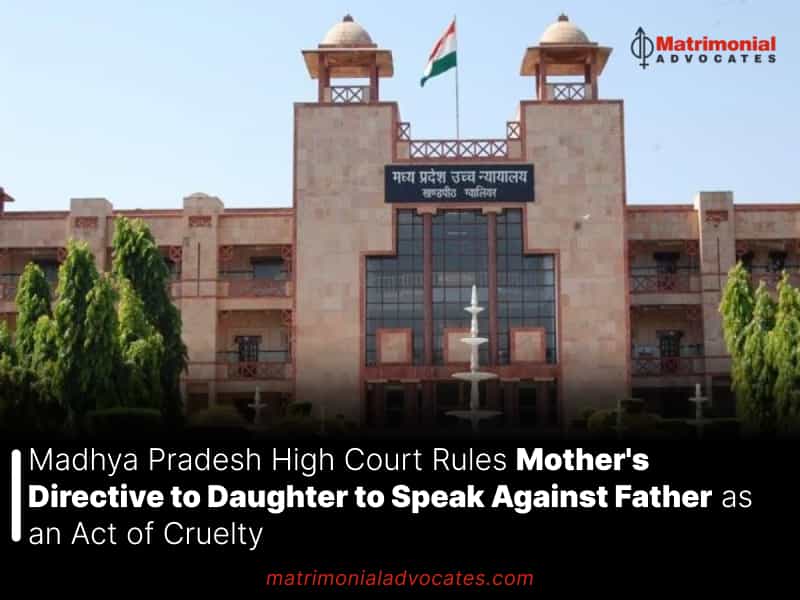
The Court made the observation while granting divorce to a man whose wife had filed multiple criminals cases against him and his family members and also prevented him from meeting their minor daughter.
The Madhya Pradesh High Court has recently underscored the severity of a mother instructing her child to speak ill of their father, deeming it a significant concern and an act of cruelty towards the man involved. In a specific case where a man pursued divorce on grounds of his wife initiating multiple criminal cases against him and his relatives, as well as impeding his access to their minor daughter, a division bench consisting of Justice Sheel Nagu and Justice Vinay Saraf made this observation.
Though it refrained from commenting on the wife’s criminal complaints due to pendency of those cases, the bench said that the “wife crossed all barriers in levelling allegations against husband and his family members”.
After reviewing the evidence, the Court found that following the birth of their daughter in 2014, the husband was denied access to her, leading him to commence legal action for custody. Although the Family Court had ordered the wife to facilitate visitation between the father and the child, she consistently disobeyed the directive, as confirmed by the Court. Considering these circumstances, the Court referred to recent pronouncements from the Delhi High Court and Kerala High Court regarding parental alienation, emphasizing that influencing a child against a parent amounts to psychological cruelty.
“In view of above, pronouncement of Delhi and Kerala High Courts and in the facts and circumstances of the present case, it can be safely observed that in present case also wife has tried to keep away husband from minor daughter and tutored her to speak against her own father. This is serious matter and definitely caused mental cruelty to husband,” the bench said.
In the present situation, the husband initiated a custody petition at the family court in Jabalpur, seeking custody of his minor child due to allegations that his wife was impeding his visitation rights with their daughter. On May 18, 2017, the court ruled in favor of the husband’s petition.
Additionally, throughout the divorce proceedings, the court repeatedly instructed the wife to facilitate meetings between the daughter and her father. By 2020, the family court had observed the wife’s consistent reluctance to arrange such interactions.
Initially, the appellant-husband filed for divorce on grounds of mental cruelty and desertion in the district court. Later, the Supreme Court transferred the case to the Principal Judge of the Family Court in Jabalpur. The petition was dismissed on October 13, 2020, leading to the current appeal before the High Court.
The High Court noted that the wife’s actions had inflicted mental cruelty upon her husband. Shortly after their marriage, she vacated the matrimonial home. Despite expectations from the husband and his family for her return, she never did, resulting in a lack of cohabitation thereafter, as highlighted by the Court.
Furthermore, the Court observed that all efforts at mediation between the couple had failed, and multiple legal cases had been filed by both parties against each other.
…marriage has irretrievably broken down due to multiple FIRs and complaints lodged by wife. Dissolution of marriage will relieve both sides of pain and anguish…Even if this court refuses decree of divorce to appellant husband, there are hardly any chances of respondent wife leading a happy life with appellant husband because a lot of bitterness created by conduct of respondent wife, which amounts to cruelty,” it said.
Taking into account these elements, the appeal was affirmed, and the husband was awarded a divorce. The Court abstained from commenting on the merits of the cases brought forth by both the husband and wife against each other, as they are still pending resolution.
“So far as lodging of FIRs and filing of various criminal cases are concerned, all cases are still pending and any comment on merits of pending cases may prejudice interest of parties and create obstacle in just disposal of cases by competent courts, therefore this court refrains from giving any finding touching the merits of pending criminal cases,” it observed.





